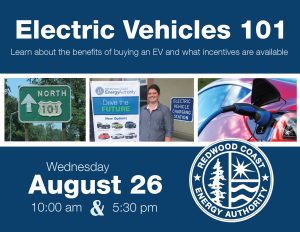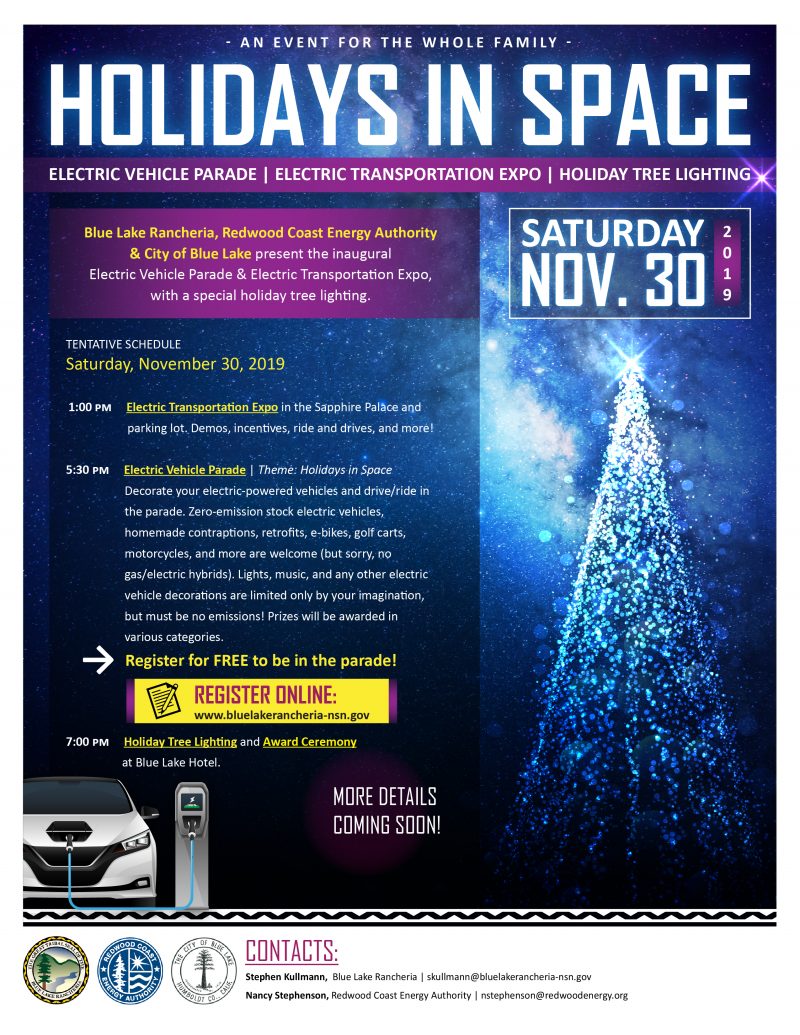News and Updates
Advanced Fuels and Transportation Newsletters
Events
You can learn more about past events on our events page.
Wednesday, August 26, two sessions: 10-11 a.m. and 5:30-6:30 p.m.
RCEA Transportation Specialist Sophia Valenzuela will talk about the different types of electric vehicles, financial incentives and assistance, consumer benefits, environmental benefits, fuel and maintenance savings, and charging options.
RCEA plans to roll out a local EV rebate this fall that will be an add-on to the California Clean Vehicle Rebate Project. Details will be provided during the webinar.
Both one-hour webinars will include time afterward for attendees to ask questions.
RCEA’s Transportation Program supports the use of low-carbon fuel vehicles in Humboldt County by planning, managing, and implementing zero-emission vehicle infrastructure. RCEA also provides information, education, and incentives to encourage local residents, businesses, and public agencies to adopt low-carbon fuel vehicles.
RCEA Electric Vehicle Buying Presentations
August 26, 2020 Webinar with Sophia Valenzuela, RCEA Transporation Specialist
June 13, 2019 at the Eureka Chamber of Commerce with Aisha Cissna, RCEA Transportation Specialist
The inaugural Electric Vehicle Parade & Expo on November 30
|
|
- Blue Lake Rancheria Councilman Jason Ramos
- Humboldt County Supervisor Mike Wilson
- Rutabaga Queen Betty Crafter.
Contest categories are:
- “Out of this World” (Best in Show)
- “Spaciest” (Most Thematic)
- “Intrepid Explorer” (non-car category).
The Award Ceremony and Holiday Tree Lighting takes place at 7 pm.
REGISTER your EV in the parade: https://bluelakerancheria-nsn.gov/holidays-in-space/
CHECK IN to the Facebook Event: https://www.facebook.com/events/2443452239109294/
CONTACTS:
Stephen Kullmann, Blue Lake Rancheria – skullmann@bluelakerancheria-nsn.gov
Nancy Stephenson, Redwood Coast Energy Authority – nstephenson@redwoodenergy.org
EcoNews Report radio interview with Stephen Kullman and Nancy Stephenson, Nov. 23





